
Find Help
More Items From Ergsy search
-

What is Lyme Disease?
Relevance: 100%
-

Can Lyme disease be treated?
Relevance: 99%
-
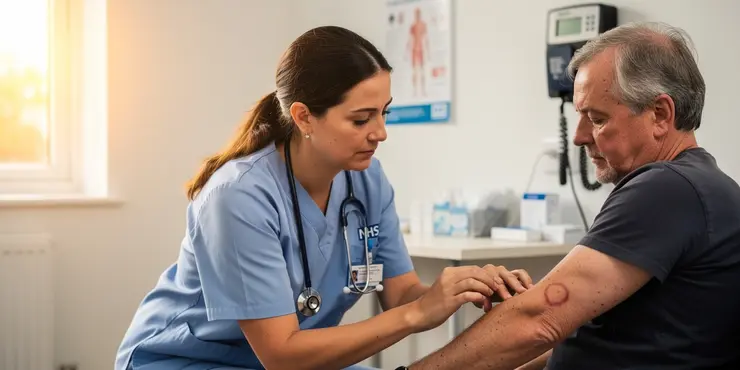
Lyme disease: What is it?
Relevance: 98%
-

Is there a vaccine for Lyme disease?
Relevance: 95%
-

How is Lyme disease transmitted?
Relevance: 94%
-

Can pets get Lyme disease?
Relevance: 93%
-

Is Lyme disease contagious between humans?
Relevance: 92%
-

What is the first sign of Lyme disease?
Relevance: 91%
-

How effective are antibiotics in treating Lyme disease?
Relevance: 91%
-
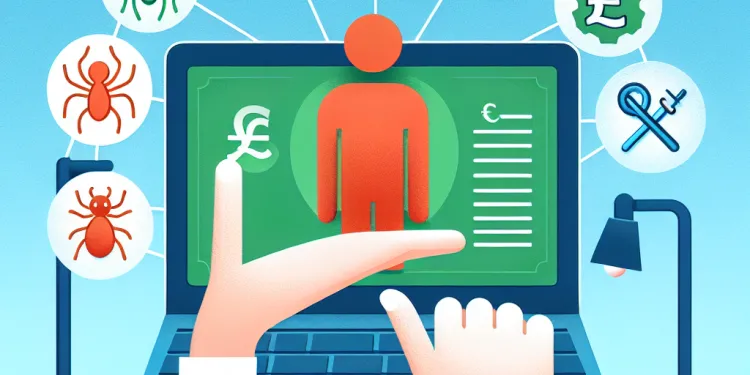
What are common symptoms of Lyme disease?
Relevance: 91%
-
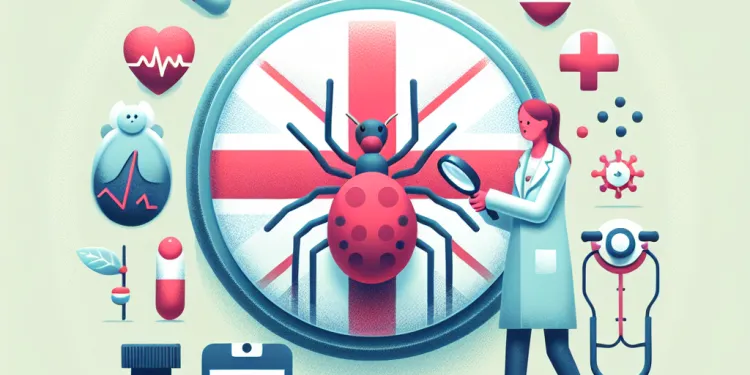
What happens if Lyme disease is left untreated?
Relevance: 90%
-

How do you prevent Lyme disease?
Relevance: 89%
-

What tests are available for diagnosing Lyme disease?
Relevance: 89%
-

Where is Lyme disease most commonly found?
Relevance: 86%
-

What kind of ticks carry Lyme disease?
Relevance: 86%
-

Can you get Lyme disease more than once?
Relevance: 85%
-

What is post-treatment Lyme disease syndrome (PTLDS)?
Relevance: 82%
-

Can Lyme disease cause long-term health problems?
Relevance: 60%
-

What types of antibiotics are typically used to treat Lyme disease?
Relevance: 59%
-

How long does a tick need to be attached to transmit Lyme disease?
Relevance: 56%
-

What treatments are available for Crohn's disease?
Relevance: 49%
-
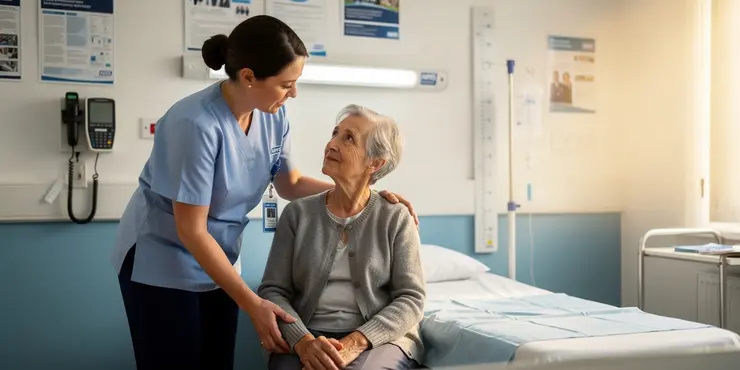
What treatments are available for Alzheimer's disease?
Relevance: 48%
-
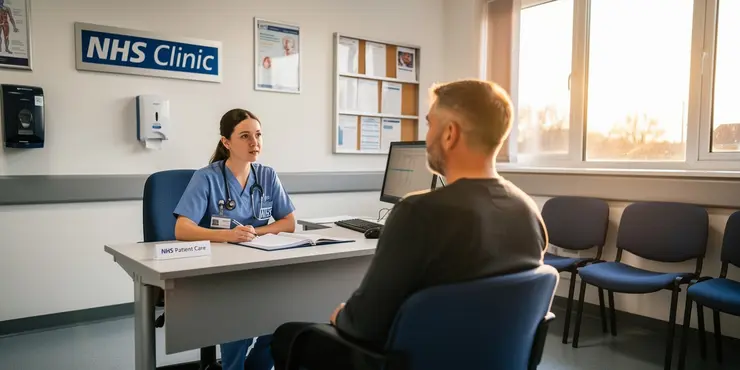
Chronic kidney disease: What are the treatments?
Relevance: 47%
-
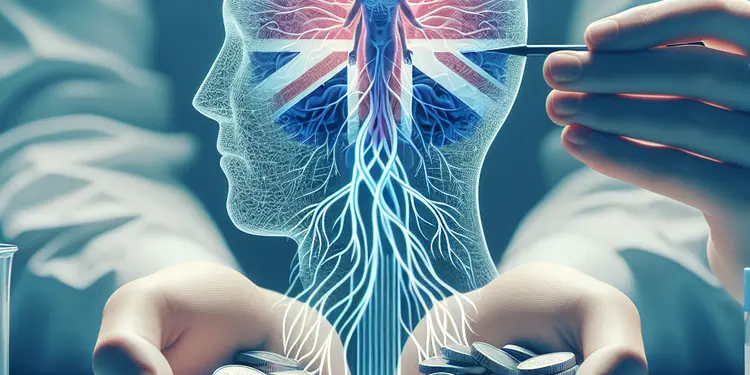
What treatments are available for motor neurone disease?
Relevance: 46%
-
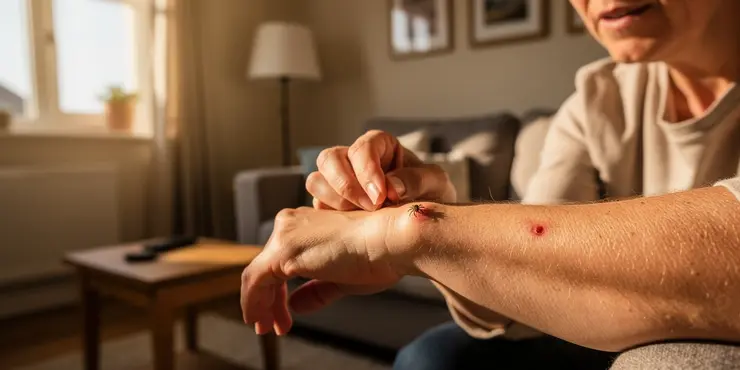
Tick Bites: Should you be worried?
Relevance: 46%
-

Can flesh-eating disease recur after treatment?
Relevance: 46%
-

Are there treatments available for Huntington's disease?
Relevance: 42%
-

Coeliac disease
Relevance: 36%
-
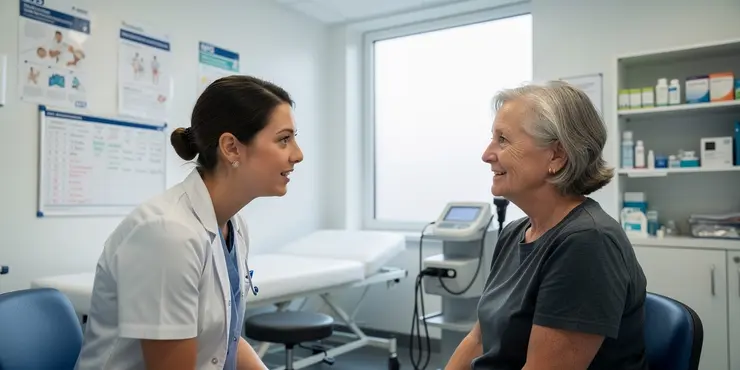
Is there a cure for Crohn's disease?
Relevance: 36%
-
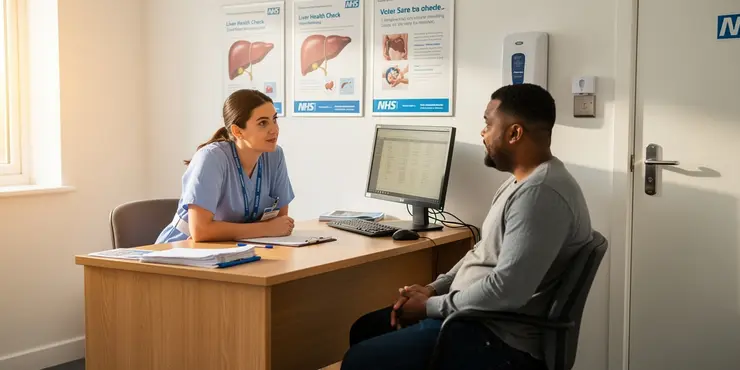
Liver disease | NHS
Relevance: 35%
-
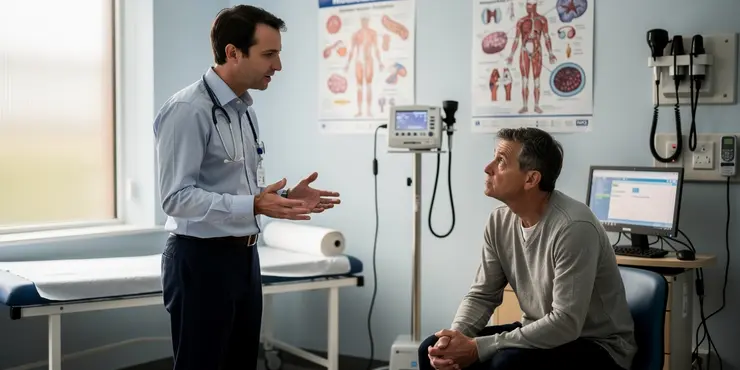
What is Mitochondrial disease?
Relevance: 35%
-
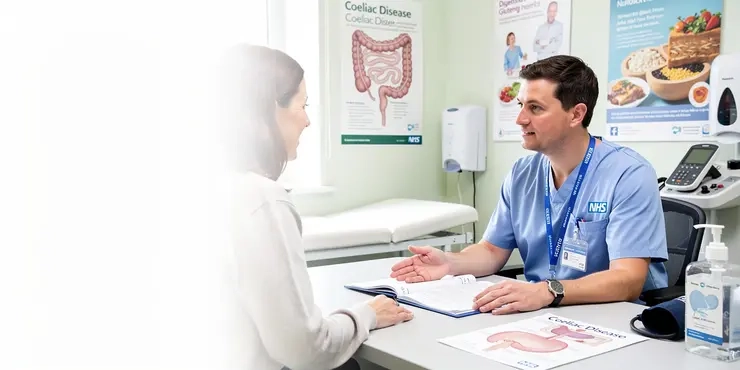
Coeliac Disease: Session 1: What is Coeliac Disease?
Relevance: 35%
-

What is Parkinson's disease?
Relevance: 35%
-

What is Huntington's disease?
Relevance: 35%
-
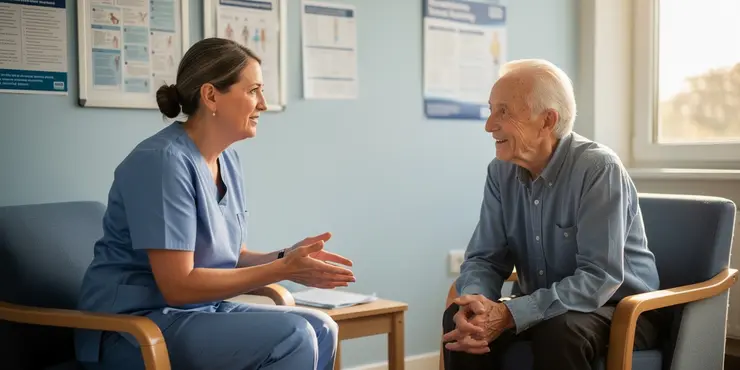
What is Alzheimer's disease?
Relevance: 34%
-

Is there a cure for motor neurone disease?
Relevance: 34%
-

How common is Alzheimer's disease in the UK?
Relevance: 34%
-

Can flesh-eating disease be treated?
Relevance: 34%
-

Can Huntington's disease be cured?
Relevance: 34%
-

What is a flesh eating disease?
Relevance: 34%
Understanding Lyme Disease Treatment
Lyme disease is an infectious disease caused by the bacterium Borrelia burgdorferi, transmitted to humans through the bite of infected ticks. In the UK, it is a growing health concern, particularly during the warmer months when outdoor activities increase the exposure risk. Effective treatment is crucial to prevent the progression of symptoms, which can range from mild to severe.
Early Detection and Treatment
The most effective way to treat Lyme disease is to catch it early. In its initial stages, Lyme disease typically presents flu-like symptoms and a characteristic skin rash known as erythema migrans. If diagnosed promptly, treatment usually involves a course of antibiotics, such as doxycycline or amoxicillin. These antibiotics are effective in eliminating the infection in its early stages, usually resulting in a full recovery within a few weeks.
Treatment for Later Stages
If Lyme disease is not treated promptly, it can progress to the later stages, affecting joints, the heart, and the nervous system. In such cases, more intensive treatment may be required. Intravenous antibiotics, such as ceftriaxone, may be necessary to effectively tackle advanced Lyme disease. Patients may require several weeks of these powerful antibiotics to combat the infection. However, even with treatment, some patients may continue to experience symptoms, known as Post-Treatment Lyme Disease Syndrome (PTLDS).
Management of PTLDS
PTLDS is a condition where symptoms persist even after treatment, leading to lingering fatigue, muscle pain, and neurological issues. The exact cause of PTLDS is not fully understood, but it is believed to be an immune response triggered by the initial infection. Treatment for PTLDS focuses on alleviating symptoms and improving quality of life, often involving pain management, physical therapy, and lifestyle modifications. Current research is ongoing to better understand and treat this condition.
Preventative Measures and Awareness
Prevention remains key in dealing with Lyme disease. Public awareness is crucial, particularly for those living in or visiting high-risk areas like rural or forested regions. Preventative steps include wearing protective clothing, using tick repellent, and performing regular tick checks after outdoor activities. Prompt removal of ticks can significantly reduce the likelihood of contracting Lyme disease.
Consultation and Guidance
If you suspect you have Lyme disease or have been bitten by a tick, it is important to consult a healthcare professional. In the UK, the NHS provides comprehensive guidelines and support for those affected by Lyme disease. Seeking medical advice early can help ensure appropriate treatment and prevent complications. Keeping informed and vigilant is vital in managing and preventing the spread of Lyme disease.
Understanding Lyme Disease Treatment
Lyme disease is caused by tiny germs called Borrelia burgdorferi. You can get it if a tick bites you. In the UK, more people get it when it's warm because they spend more time outside. It's important to treat Lyme disease early so it doesn't get worse. Symptoms can be mild or serious.
Early Detection and Treatment
To treat Lyme disease well, you need to find it early. At first, it can feel like the flu and cause a special rash on the skin. If found early, doctors use medicines called antibiotics like doxycycline or amoxicillin. These medicines can make you better in a few weeks.
Treatment for Later Stages
If Lyme disease is not treated early, it can get worse and harm the joints, heart, or nerves. Then, stronger treatment is needed. Doctors might use powerful antibiotics given through a drip. This treatment can last for a few weeks. Some people might still feel unwell after treatment. This is called Post-Treatment Lyme Disease Syndrome (PTLDS).
Management of PTLDS
PTLDS means you still have symptoms even after getting treated. It can make you feel very tired, sore, or forgetful. Doctors aren't sure why it happens, but they think it might be because of how your body fought the germs. Treatment focuses on making you feel better. You might use pain medicine, do exercises, or change your daily habits. Scientists are trying to learn more about PTLDS.
Preventative Measures and Awareness
The best way to deal with Lyme disease is to prevent it. People should know about the risk, especially if they live or go to places with lots of trees or grass. To stay safe, wear clothes that cover your skin, use bug spray, and check your body for ticks after being outside. Removing ticks quickly can stop Lyme disease.
Consultation and Guidance
If you think you have Lyme disease or a tick has bitten you, see a doctor. In the UK, the NHS can help with advice and treatment. Seeing a doctor early can help you get better and stop the disease from spreading. It's important to stay informed and careful to manage and prevent Lyme disease.
Frequently Asked Questions
What is Lyme disease?
Lyme disease is an infectious disease caused by the bacterium Borrelia burgdorferi, transmitted to humans through the bite of infected black-legged ticks.
Can Lyme disease be treated?
Yes, Lyme disease can be treated, especially if it is caught early. Antibiotics are used to treat the infection effectively.
What antibiotics are used to treat Lyme disease?
Common antibiotics used to treat Lyme disease include doxycycline, amoxicillin, and cefuroxime axetil.
How long is the typical treatment duration for Lyme disease?
The duration of antibiotic treatment typically lasts 10 to 21 days, depending on the stage of the disease and the chosen antibiotic.
Is oral or intravenous antibiotic treatment more effective for Lyme disease?
Oral antibiotics are generally effective for early-stage Lyme disease. In more severe cases, or if the disease has spread to the nervous system, intravenous antibiotics may be necessary.
What should I do if I suspect I have Lyme disease?
If you suspect you have Lyme disease, it is important to see a healthcare provider as soon as possible for diagnosis and treatment.
Are there any complications if Lyme disease is not treated early?
Yes, if untreated, Lyme disease can cause more serious complications, including joint pain, neurological problems, and heart issues.
Can Lyme disease recur after treatment?
Patients can sometimes experience symptoms after treatment, known as Post-Treatment Lyme Disease Syndrome (PTLDS), but recurrence of infection is uncommon.
Are there any side effects of Lyme disease treatment?
Common side effects of antibiotics include nausea, diarrhea, and allergic reactions, but these are generally manageable.
Can Lyme disease be treated during pregnancy?
Yes, Lyme disease can be treated during pregnancy with specific antibiotics that are safe for both mother and child.
Is there a vaccine available for Lyme disease?
Currently, there is no vaccine available for Lyme disease in humans, but preventive measures and prompt treatment are effective strategies.
What is the prognosis for someone treated for Lyme disease?
Most people who receive appropriate antibiotic treatment for Lyme disease make a full recovery, although some may have lingering symptoms.
Does everyone with Lyme disease require treatment?
Yes, everyone diagnosed with Lyme disease should receive antibiotic treatment to prevent complications.
What are the early symptoms of Lyme disease?
Early symptoms of Lyme disease include fever, headache, fatigue, and a characteristic skin rash called erythema migrans.
How is Lyme disease diagnosed?
Lyme disease is typically diagnosed based on symptoms, history of tick exposure, and laboratory testing, such as blood tests for antibodies.
Can Lyme disease cause long-term damage if left untreated?
Yes, untreated Lyme disease can lead to chronic joint inflammation, neurological symptoms, and even cognitive defects.
Is herbal therapy effective in treating Lyme disease?
There is no scientific evidence supporting the effectiveness of herbal remedies for treating Lyme disease. Antibiotics remain the recommended treatment.
Can pets transmit Lyme disease to humans?
Pets cannot directly transmit Lyme disease to humans, but they can bring ticks into the home, increasing the risk of human exposure.
What are the prevention strategies for Lyme disease?
Preventive measures include using insect repellent, wearing protective clothing, performing tick checks, and avoiding tick-infested areas.
Is follow-up necessary after Lyme disease treatment?
Follow-up may be necessary if symptoms persist, to evaluate for possible complications and to determine if further treatment is needed.
What is Lyme disease?
Lyme disease is a sickness caused by tick bites. Ticks are tiny bugs that can bite you.
If you go outside where there are trees or grass, check for ticks on your skin and clothes. It's important to catch them early.
If you feel sick after a tick bite, you should tell an adult or a doctor.
There are tools to help, like using a tick remover tool to take ticks off safely.
Lyme disease is an illness you can get from a type of germ called Borrelia burgdorferi. You can catch it if a special kind of tick, called a black-legged tick, bites you when it has the germ.
Can Lyme disease be treated?
Yes, Lyme disease can be treated. When someone has Lyme disease, they can take medicine to help them get better. This medicine is called antibiotics. It is very important to see a doctor if you think you have Lyme disease. The doctor will give you the right medicine to help you feel well again.
Sometimes, it might take a little time to feel completely better. It is important to take all the medicine the doctor gives you, even if you start to feel good.
If you need help reading or understanding, you can:
- Ask an adult or friend to explain it to you.
- Use a reading app that reads the words out loud.
Remember, it's always okay to ask for help if you need it.
Yes, Lyme disease can be treated. It is best to start treatment as soon as possible. Doctors use medicine called antibiotics to help get rid of the infection.
What medicine is used to help Lyme disease?
Lyme disease is a sickness you get from a tick bite. Doctors use a special kind of medicine called antibiotics to help make people feel better.
Some common antibiotics that doctors use are:
- Doxycycline
- Amoxicillin
- Cefuroxime
If you think you have Lyme disease, see a doctor. The doctor will give you the right medicine to help you.
It can help to use tools like picture charts or clear lists to understand medicines.
Doctors use special medicine to help people with Lyme disease. This medicine is called antibiotics. Three common antibiotics for Lyme disease are doxycycline, amoxicillin, and cefuroxime axetil.
If you find reading hard, you can use tools like text-to-speech apps to help. These apps can read the words out loud for you.
How long does it take to get better from Lyme disease?
If you have Lyme disease, doctors usually give you medicine to help you get better. This medicine can take about 2 to 4 weeks to work. Most people start feeling better after taking the medicine for a few weeks.
If reading is hard, you can ask someone to read it to you. Using pictures or simple apps can also help understand better.
People usually take antibiotics for 10 to 21 days. This can be longer or shorter. It depends on how sick you are and the kind of medicine the doctor gives you.
Which Works Better for Lyme Disease: Medicine Taken by Mouth or Through a Drip?
If you have Lyme disease, there are two ways you might get medicine: by swallowing it, or through a needle into your vein (called a drip).
Doctors want to know which way helps people feel better.
If you are unsure, you can talk to your doctor. They will help you choose the best one for you.
When Lyme disease is caught early, taking medicine called antibiotics by mouth usually works well. If Lyme disease is worse or has reached the nerves, you might need stronger medicine given through a needle into your vein.
What should I do if I think I have Lyme disease?
If you feel unwell and think you have Lyme disease, follow these steps: 1. **Tell an Adult:** Talk to a parent, teacher, or trusted adult. It's important to share how you are feeling. 2. **Visit a Doctor:** See a doctor as soon as you can. A doctor can help you and check if you have Lyme disease. 3. **Write Down Symptoms:** Make a list of how you are feeling. This can help you remember what to tell the doctor. 4. **Ask Questions:** If you don't understand something, ask questions. It is okay to ask for help. 5. **Use a Calendar:** Mark the days when you don't feel well. This can help you see how long you have felt like this. You can also use tools that read text aloud to you or ask someone to help you if you need it.If you think you might have Lyme disease, go to a doctor or nurse quickly. They can help find out if you have it and give you medicine to feel better.
What happens if Lyme disease is not treated early?
If you do not get medicine for Lyme disease quickly, it can cause bigger problems later on.
Some things that might happen:
- You could get pain in your joints, like your knees.
- You might feel very tired.
- Your heart might not work as well.
- Your brain could have trouble thinking clearly.
It is important to see a doctor if you think you have Lyme disease.
Yes, if you don't treat Lyme disease, it can cause bigger problems. You might feel pain in your joints, have trouble with your nerves, or even have heart problems.
If it's hard to read or understand, you can use tools that read the text out loud for you. You can also ask someone to explain it to you.
Can Lyme disease come back after treatment?
Sometimes, people can feel unwell after treatment. This is called Post-Treatment Lyme Disease Syndrome (PTLDS). It is rare for the infection to come back.
Do medicines for Lyme disease cause problems?
When you take medicine for Lyme disease, you might have some problems.
Good things to try:
- Ask your doctor if you feel funny or sick.
- Have someone help you remember to take your medicine.
- Use pictures or notes to keep track of how you feel.
When you take medicine called antibiotics, sometimes it can make your tummy feel upset, give you loose poo, or make you itchy. But don't worry, you can usually handle these things.
Can a pregnant woman get help for Lyme disease?
Yes, doctors can treat Lyme disease when someone is pregnant. They use special medicine that is safe for the mum and the baby.
Is there a vaccine for Lyme disease?
Lyme disease can make people and animals sick. A vaccine is a special medicine that helps stop people from getting sick. But right now, there's no vaccine for Lyme disease that people can use.
If you are worried about Lyme disease, you can talk to a doctor. They can help you learn how to stay safe, like wearing long sleeves and using bug spray to keep ticks away. Ticks can give you Lyme disease if they bite you.
Reading tools can help if it’s hard to understand. Try using pictures, tools that read text aloud, or simple word helpers.
Right now, there is no shot to stop Lyme disease in people. But you can stop it by protecting yourself and getting help quickly.
What happens to a person after getting treatment for Lyme disease?
When a person gets medicine for Lyme disease, they usually start to feel better. Most people get back to their normal health.
If a person still feels unwell after treatment, a doctor can help. They might give more medicine or other ways to feel better.
It can help to keep talking to the doctor. They will check to see how you are getting better.
Using a calendar or a phone app can remind you to take your medicine on time. Keeping notes about how you feel each day can also help you and your doctor see how you are doing.
Most people get better when they take medicine called antibiotics for Lyme disease. Some people might still feel sick for a little while after.
Do all people with Lyme disease need medicine?
If someone has Lyme disease, they need to take medicine called antibiotics. This helps to stop them from getting sicker.
What signs show up first if you get Lyme disease?
If you get Lyme disease, you might feel sick. Look out for these early signs:
- A round, red rash that looks like a bull's-eye.
- Feeling very tired.
- Fever or feeling hot and cold.
- Headache or head pain.
- Pain in your muscles or joints.
If you see these signs, tell a grown-up or a doctor.
Some helpful tools to use are:
- Using pictures to help understand.
- Talking to someone who knows about Lyme disease.
Early signs of Lyme disease are:
- Fever (feeling hot)
- Headache (pain in your head)
- Feeling very tired
- A special kind of skin rash (red area on the skin)
Helpful Tools and Tips:
- Ask someone to read the information with you.
- Make notes or drawings to help you remember.
- Use online videos for more explanations.
How do doctors know if you have Lyme disease?
Doctors find out if you have Lyme disease by looking at your symptoms. They also check if you have been near ticks. Sometimes, they do a blood test to look for signs of the illness.
What happens if Lyme disease is not treated?
Can Lyme disease make a person feel bad for a long time if they don't get medicine?
Lyme disease comes from a tick bite. If we don't go to the doctor and get medicine, it can make us feel sick for a long time.
Some people might have pain in their joints or feel very tired. This can last a long time.
It is important to see a doctor if we think we have Lyme disease.
Tools that can help:
- Ask a grown-up or friend to help read and understand information.
- Look at pictures or use videos to learn more about Lyme disease.
Yes, if Lyme disease is not treated, it can cause long-lasting pain in the joints. It can also cause problems with the brain and nerves, and make it hard to think clearly.
Does herbal medicine help treat Lyme disease?
Scientists say there is no proof that herbs can help treat Lyme disease. Doctors say antibiotics are the best way to treat it.
Can pets give Lyme disease to people?
Lyme disease is an illness you can get from tick bites. Ticks are small bugs. If a tick bites your pet, it can have Lyme disease. Pets can't give Lyme disease to you directly, but they can carry ticks into your home. Be sure to check your pets for ticks.
Tip: Use a tick comb on your pet. This can help find ticks. If you find a tick, ask an adult to remove it with tweezers. Wash your hands after.
Pets can't give people Lyme disease. But pets can bring ticks inside the house. This makes it more likely for people to get bitten by ticks.
How can you stop getting Lyme disease?
Here are some ways to stay safe from ticks:
- Use bug spray to keep ticks away.
- Wear clothes that cover your skin.
- Check your body for ticks after being outside.
- Stay away from places where ticks live.
Do I need to see the doctor again after Lyme disease treatment?
If symptoms don't go away, you might need to see the doctor again. The doctor will check for any problems and see if you need more treatment.
Useful Links
This website offers general information and is not a substitute for professional advice.
Always seek guidance from qualified professionals.
If you have any medical concerns or need urgent help, contact a healthcare professional or emergency services immediately.
Some of this content was generated with AI assistance. We’ve done our best to keep it accurate, helpful, and human-friendly.
- Ergsy carfully checks the information in the videos we provide here.
- Videos shown by Youtube after a video has completed, have NOT been reviewed by ERGSY.
- To view, click the arrow in centre of video.
- Most of the videos you find here will have subtitles and/or closed captions available.
- You may need to turn these on, and choose your preferred language.
- Go to the video you'd like to watch.
- If closed captions (CC) are available, settings will be visible on the bottom right of the video player.
- To turn on Captions, click settings .
- To turn off Captions, click settings again.
More Items From Ergsy search
-

What is Lyme Disease?
Relevance: 100%
-

Can Lyme disease be treated?
Relevance: 99%
-

Lyme disease: What is it?
Relevance: 98%
-

Is there a vaccine for Lyme disease?
Relevance: 95%
-

How is Lyme disease transmitted?
Relevance: 94%
-

Can pets get Lyme disease?
Relevance: 93%
-

Is Lyme disease contagious between humans?
Relevance: 92%
-

What is the first sign of Lyme disease?
Relevance: 91%
-

How effective are antibiotics in treating Lyme disease?
Relevance: 91%
-

What are common symptoms of Lyme disease?
Relevance: 91%
-

What happens if Lyme disease is left untreated?
Relevance: 90%
-

How do you prevent Lyme disease?
Relevance: 89%
-

What tests are available for diagnosing Lyme disease?
Relevance: 89%
-

Where is Lyme disease most commonly found?
Relevance: 86%
-

What kind of ticks carry Lyme disease?
Relevance: 86%
-

Can you get Lyme disease more than once?
Relevance: 85%
-

What is post-treatment Lyme disease syndrome (PTLDS)?
Relevance: 82%
-

Can Lyme disease cause long-term health problems?
Relevance: 60%
-

What types of antibiotics are typically used to treat Lyme disease?
Relevance: 59%
-

How long does a tick need to be attached to transmit Lyme disease?
Relevance: 56%
-

What treatments are available for Crohn's disease?
Relevance: 49%
-

What treatments are available for Alzheimer's disease?
Relevance: 48%
-

Chronic kidney disease: What are the treatments?
Relevance: 47%
-

What treatments are available for motor neurone disease?
Relevance: 46%
-

Tick Bites: Should you be worried?
Relevance: 46%
-

Can flesh-eating disease recur after treatment?
Relevance: 46%
-

Are there treatments available for Huntington's disease?
Relevance: 42%
-

Coeliac disease
Relevance: 36%
-

Is there a cure for Crohn's disease?
Relevance: 36%
-

Liver disease | NHS
Relevance: 35%
-

What is Mitochondrial disease?
Relevance: 35%
-

Coeliac Disease: Session 1: What is Coeliac Disease?
Relevance: 35%
-

What is Parkinson's disease?
Relevance: 35%
-

What is Huntington's disease?
Relevance: 35%
-

What is Alzheimer's disease?
Relevance: 34%
-

Is there a cure for motor neurone disease?
Relevance: 34%
-

How common is Alzheimer's disease in the UK?
Relevance: 34%
-

Can flesh-eating disease be treated?
Relevance: 34%
-

Can Huntington's disease be cured?
Relevance: 34%
-

What is a flesh eating disease?
Relevance: 34%


